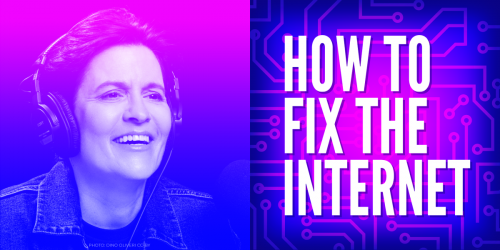Washington, D.C.—The Electronic Frontier Foundation won petitions submitted to the Library of Congress that will make it easier for people to legally remove or repair software in the Amazon Echo, in cars, and in personal digital devices, but the library refused to issue the kind of broad, simple and robust exemptions to copyright rules that would benefit millions of technology users.
The Library of Congress, through its subsidiary, the Copyright Office, yesterday granted several new exemptions to Section 1201 of the Digital Millennium Copyright Act (DMCA). Section 1201 makes it illegal to circumvent the computer code that prevents copying or modifying in most software-controlled products—which nowadays includes everything from refrigerators and baby monitors to tractors and smart speakers. EFF has fought a years-long battle against anti-consumer DMCA abuse, since the statute on its face gives manufacturers, tech companies, and Hollywood studios outsized control over the products we own.
The Library and Copyright Office granted an exemption that allows jailbreaking of voice assistant devices like the Amazon Echo and Google Home. Owners of those devices will now be able to add and remove software, adapting the devices to their own needs, even in ways the manufacturer doesn’t approve of.
The agencies also granted EFF’s proposal to expand the universe of devices that security researchers can examine for flaws. Instead of narrow categories of devices, researchers can now access the software on any computer system or network for good-faith security research without fear of a DMCA lawsuit.
Exemptions allowing video creators to use encrypted video clips as source material were expanded and made simpler. And new exemptions were granted covering maintenance and repairs of vehicles and some personal devices.
Yet despite these exemptions, the agencies denied EFF’s broader proposal that would end this expensive, piecemeal approach requiring individual repair requests on behalf of each new kind of device, and instead create an exemption to permit repair of all devices that contain software. They also rejected EFF’s proposal to allow for lawful modification and tinkering with digital devices that goes beyond repair.
“Software-enabled machines and devices surround us. Most of us own and use several every day. Section 1201 prevents people from tinkering with products they purchase, and prevents researchers, scientists, educators, and creators from looking for new ways to improve, create, and innovate,” said EFF Senior Staff Attorney Mitch Stoltz. “This expensive regulatory process of seeking individual permission for each kind of device is a tremendous drag on innovation. We will continue to advocate for exemptions to Section 1201 so that people—not manufacturers— control the appliances, computers, toys, vehicles, and other products they own, but this process is unreasonable.
In addition to fighting for exemptions, EFF is challenging the constitutionality of the DMCA in court on First Amendment grounds.
“Section 1201 is an unconstitutional restraint on speech because it blocks a wide range of legitimate, noninfringing expression,” said EFF Senior Staff Attorney Kit Walsh. “While the new exemptions are important victories, they don’t cure the law’s fatal flaws.”
For more on the DMCA lawsuit:
https://www.eff.org/cases/green-v-us-department-justice
For more on EFF’s exemption petition:
https://www.eff.org/press/releases/eff-asks-copyright-office-improve-exemptions-digital-millennium-copyright-act
For more on copyright abuse:
https://www.eff.org/issues/drm
EFF Wins DMCA Exemption Petitions for Tinkering With Echos and Repairing Appliances, But New Circumvention Rules Still Too Narrow To Benefit Most Technology Users
Contact:








